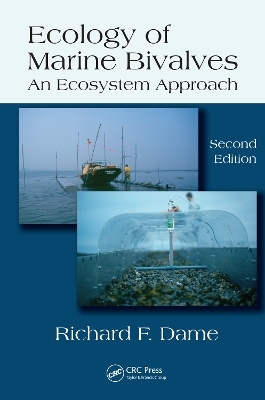
Ecology of Marine Bivalves
Crc Press Inc (Verlag)
9781439839096 (ISBN)
With the advent of the United Nations Millennium Ecosystem Assessment (MEA) in the year 2000, its emphasis for utilizing the ecosystem approach as a standard guideline, and the growing interest in global climate change, this edition has been expanded to include:
A new chapter on shell rings, which emphasizes the importance of interaction between disciplines so that we might learn from the past in order to plan for the future
Scientific work done on several continents, including case studies from the Chesapeake Bay, the Wadden Sea, and other case studies from Europe and New Zealand
Additional material on non-equilibrium thermodynamics, complexity theory, and other cross-disciplinary interactions
This book discusses the roles of marine bivalves as a keystone species and as ecosystem engineers, and explains how bivalves are used as monitors and indicators of ecosystem stress and as a fisheries resource. Utilizing case studies and targeted published research to develop narratives suitable for a complex systems approach, the second edition of Ecology of Marine Bivalves is invaluable to scientists and marine workers interested in an up-to-date treatment of mollusks in our seas.
Richard F. Dame, Ph.D., is Distinguished Palmetto Professor Emeritus of Marine Science at Coastal Carolina University in South Carolina. Dr. Dame received his B.S. degree from the College of Charleston, South Carolina in 1964. He obtained his M.A. degree from the University of North Carolina in 1967 and his Ph.D. degree from the University of South Carolina in 1971. He was a founding member of the Marine Science Program (1971-2006) at CCU. During the same time frame he was a very active research associate of the Belle W. Baruch Institute for Marine Biology and Coastal Research, University of South Carolina. He has served as the external member on numerous Ph.D. candidate committees in the United States and Europe. In addition to these academic activities, he served a two-year tour as the Ecosystems Program Director at the National Science Foundation. In recognition of his achievements he is listed in Who's Who in America and Who's Who in the World. Dr. Dame is an active scholar in the area of coastal and estuarine ecosystems. He is currently a review editor for the leading marine ecological journal, Marine Ecology Progress Series. The majority of his work has been funded by the National Science Foundation.
Introduction: Ecosystem Perspective and Bivalve Molluscs. Supporting Processes: Physical Environmental Interactions. Organismic Level Processes. Population Processes. Ecosystem Processes: Ecosystem Processes: Grazing. Ecosystem Processes: System Metabolism and Nutrient Cycling. Ecosystem Experiments: Models, Experimental Ecosystems, and Field Manipulations. Bivalves as Components of Ecosystem Health. Synthesis and Conclusions. Conclusions. Index.
| Erscheint lt. Verlag | 2.12.2011 |
|---|---|
| Reihe/Serie | CRC Marine Science |
| Zusatzinfo | 43 Tables, black and white; 56 Illustrations, black and white |
| Verlagsort | Bosa Roca |
| Sprache | englisch |
| Maße | 156 x 234 mm |
| Gewicht | 690 g |
| Themenwelt | Sachbuch/Ratgeber ► Natur / Technik ► Natur / Ökologie |
| Naturwissenschaften ► Biologie ► Limnologie / Meeresbiologie | |
| Naturwissenschaften ► Biologie ► Ökologie / Naturschutz | |
| Naturwissenschaften ► Biologie ► Zoologie | |
| ISBN-13 | 9781439839096 / 9781439839096 |
| Zustand | Neuware |
| Informationen gemäß Produktsicherheitsverordnung (GPSR) | |
| Haben Sie eine Frage zum Produkt? |
aus dem Bereich


